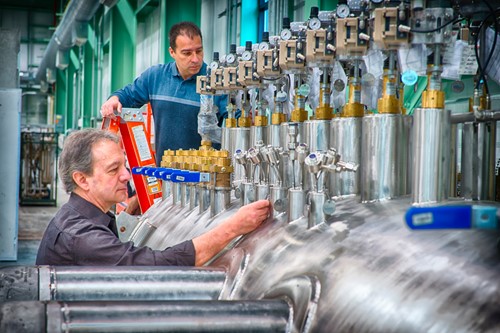
Small and medium-sized enterprises (SMEs) are responsible for generating numerous sources of employment. Accounting for more than 99% of the business fabric in Latin America, they generate about 30% of GDP[1], and therefore their improvement or deterioration results in a significant social impact for economies.
In Latin America, there is a tendency to specialize smaller companies in low-productivity activities. Thus, the region has a heterogeneous productive structure, where a small number of companies concentrate much of regional GDP in sectors with very high productivity, while the rest develops activities whose performance is quite poor. The three highest-productivity sectors in Latin America account for 26.9% of value added, but only 8% of total employment and 1.8% of the number of enterprises[2].
In this scenario, the COVID-19 pandemic emerged, forcing governments to take strict measures to contain the spread of infections and paralyzing about 50% of economic activities, reflected in partial or total closures of industries, supply chains, travels, and tourism, among others.
The COVID-19 pandemic has shown how vulnerable economies can be. Among the problems that arise is the vulnerability of the SME sector, coupled with the fragility of value chains, the lack of alternative suppliers and the dependence caused by a greater concentration of the market.
In this context, it is essential to continue to make efforts towards generating and strengthening public policies aimed at raising productivity and employment in the search for economic structures that promote the growth and development of this sector.
In the short term, governments must design and implement a package of fiscal and monetary stimulus measures that support SMEs in their productive activities and do not drastically reduce their employment levels. The International Labour Organization (ILO) sets out 5 lines of action[3] to counteract the economic effect of COVID-19 on SMEs: 1) Better access to finance and working capital to ensure their short-term liquidity through grants, affordable loans or temporary tax exemptions; 2) boosting demand for products and services; 3) promotion of employment and social protection, including subsidies to help workers keep their jobs and training programmes; 4) support for reopening of enterprises after the virus is contained; 5) social dialogue and social cohesion.
However, the long-term goal must be to achieve greater economic complexity and greater productivity, so that companies can reduce their vulnerability to phenomena such as COVID-19 and others of an economic or financial nature. In addition, it is necessary to strengthen productive chains, promoting the development of those strategic sectors for economies.
In this connection, since 2017, the Permanent Secretariat of the Latin American and Caribbean Economic System (SELA), in collaboration with CAF-development bank of Latin America, has proposed a work agenda whose essential objective is to promote the productive articulation of SMEs in the region, pointing to the long-term premise. To that end, it developed a Work Programme that provided for the implementation of activities that addressed topics such as the identification of potential productive niches, the assessment of the impact of public policies, formalization and financial inclusion of small and medium-sized enterprises.
It should be noted that this Programme was developed through training activities in the implementation of a methodology for the identification of productive niches. This methodology allows policy makers to have an effective tool to map potential productive sectors based on existing productive capacities.
The Work Programme of SELA for 2020 aims at the economic recovery of the region. The implementation of the methodology helps reduce the selection time of potential companies and promotes the development of higher value-added productive activities. In addition, it includes training activities on several topics, such as trade promotion, internationalization and financial inclusion.
For 2021, the Permanent Secretariat of the SELA will continue to carry out activities that promote the strengthening of the business sector. To that end, such activities will focus on the promotion of innovation as a strategy to support SMEs and capacity building for risk management in enterprises.
[1]La Prensa Digital. Director de Análisis de la CAF aconseja cómo proteger a las mipymes del coronavirus. Available at: http://www.laprensa.com.bo/economia/20200405/director-de-analisis-de-la-caf-aconseja-como-proteger-las-mipymes-del-coronavirus
[2]Dini, M. and Stumpo, G. (2019) MIPYMES en América Latina: un frágil desempeño y nuevos desafíos para las políticas de fomento. Economic Commission for Latin America and the Caribbean (ECLAC)
[3]https://www.ilo.org/global/about-the-ilo/multimedia/video/institutional-videos/WCMS_740715/lang–es/index.htm
